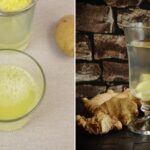Waking Up with a Bitter Taste in Your Mouth: What Could It Mean?
Waking up to a bitter taste in your mouth is a common symptom experienced by many. However, it’s not just a matter of oral hygiene; it could also be a warning sign of underlying health issues. Discover the main causes and related conditions associated with this symptom.
Alerting Health Conditions That Cause a Bitter Taste
Poor Oral Hygiene
One of the reasons for a bitter taste in the mouth could be inadequate oral hygiene before bedtime, leading to bacterial buildup and resulting in a bitter taste. Additionally, poor oral hygiene can cause gum disease, tooth decay, and other dental issues. Therefore, it’s essential to maintain good oral hygiene practices.

Gastroesophageal Reflux Disease (GERD)
Another cause of a bitter taste in the mouth upon waking up is gastroesophageal reflux, especially at night. It can leave a bitter or sour taste in your mouth the next morning. If you have GERD, you may also experience symptoms such as heartburn, chest pain, and difficulty swallowing. It is advisable to seek medical attention as soon as possible in such cases.
Liver and Gallbladder Issues
Recurring bitter tastes in the mouth could indicate liver problems such as hepatitis, fatty liver, or gallstones, which can disrupt bile secretion, resulting in a bitter taste. If it is related to liver or gallbladder issues, you may also notice symptoms like jaundice, pain in the lower right abdomen, and fatigue.
Infections and Inflammations
Upper respiratory infections, such as sinusitis or pharyngitis, or systemic infections can cause a bitter taste. Bacteria or viruses may alter your sense of taste, especially when your body is fighting off an infection.
Side Effects of Medication
Certain medications, including antibiotics, blood pressure drugs, or antidepressants, can lead to a dry mouth and a bitter taste. If you’re experiencing this while taking medication, consult your doctor.

Hormonal Changes
Hormonal fluctuations in the body can also cause a bitter taste in the mouth. Pregnant women or those going through menopause may experience this symptom due to changing hormone levels. This condition is usually temporary and subsides as hormones stabilize.
When to Seek Medical Attention for a Bitter Taste in Your Mouth
If the bitter taste persists or is accompanied by the following symptoms, it’s advisable to consult a doctor for an accurate diagnosis:
- Abdominal pain, nausea, or vomiting.
- Jaundice (yellowing of the skin and eyes) or dark urine.
- Unexplained weight loss.
- Chest discomfort or difficulty swallowing.
- Symptoms persist for more than a week despite improved oral hygiene.
How to Improve a Bitter Taste in Your Mouth
Practice good oral hygiene: Brush your teeth twice a day, use dental floss, and rinse with saltwater or a specialized mouthwash.
Stay hydrated: Ensure you’re drinking enough water, especially in the evening, to alleviate a bitter taste.
Avoid late-night snacks: Refrain from consuming spicy, greasy foods, or alcohol before bedtime to reduce the risk of reflux.
Regular check-ups: Maintain regular dental, liver, and stomach health check-ups to detect any potential issues early on.
Adopt a healthier lifestyle: Maintain a regular sleep schedule, manage stress, and follow a nutritious diet.
The 6 Main Culprits Behind Your Skin’s Woes
Acne is a common skin condition that affects many people, especially adolescents and those with sensitive skin. It can be a source of great distress, impacting self-esteem and confidence. The journey to achieving clear skin can often be challenging and overwhelming, with countless treatments and remedies available, leaving those affected confused and unsure of where to start.
The Harvest Moon may be the season for pomelos, but for some, it’s best to avoid this fruit altogether.
Bưởi is a citrus fruit that is renowned for its nutritional benefits. However, it’s important to remember that not everyone may enjoy or tolerate this fruit. While it boasts a wealth of vitamins and minerals, some individuals may experience adverse effects due to its unique properties. As such, it’s always advisable to listen to your body and consult a healthcare professional to determine if bưởi is a suitable addition to your diet.



































